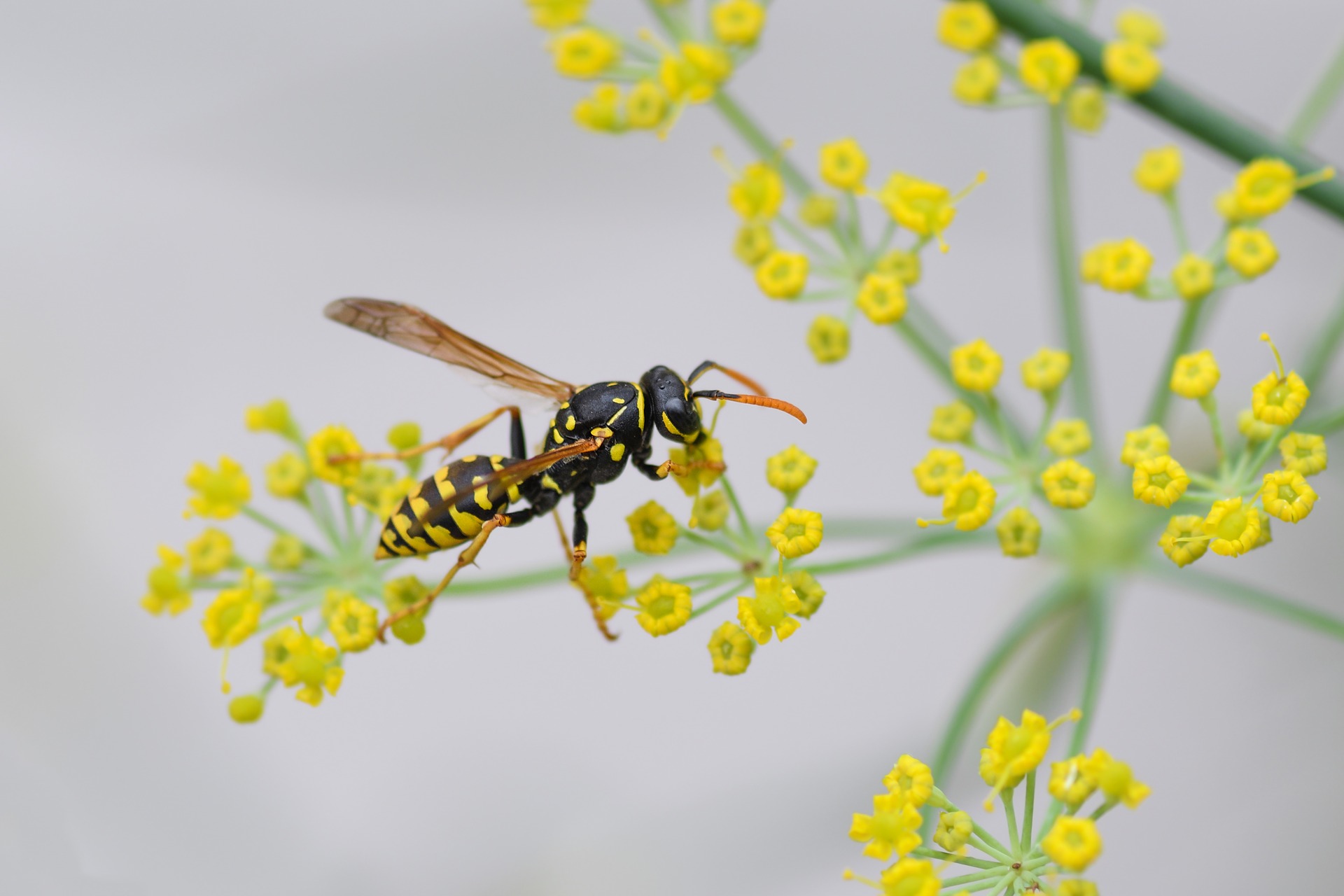It’s Peak Season for Wasps
With the Back to School season in full force, summer is quickly fading from our minds. But the heat and pests of summer will be around for weeks to come.

Stinging insects such as various types of wasps, yellowjackets, hornets and bees, are common summertime pests and their stings can be more than just a painful nuisance. Some stinging insects pose more serious threats than others. To determine the risk to your family, you will need to identify the type of insect, especially for wasps and yellowjackets.
Wasps are summer pests that are at their peak during July, August and September.
Signs of Wasps Nest Near Your Home
- Wasps flying near sheltered areas such as gutters or roof spaces.
- Flight paths from wall cavities, eaves, sheds and garages.
It is not always necessary to remove wasp nests around your home. As summer runs its course, nests will eventually be abandoned. But if the nest appears in an area you frequent, it is best to have a professional remove the nest. Do not attempt to remove it yourself.
Tips To Reduce The Chances Of Being Stung
- Seal cracks and crevices: Seal all visible cracks and crevices to keep these pests from moving indoors, and regularly inspect around the yard and along the perimeter of the house for nests.
- Keep food covered: During a picnic or cookout, cover all food when outside and be sure to keep tight fitting lids on trash bins.
- Avoid excessive use of fragrances: If spending long periods of time outdoors, avoid excessive use of perfume or cologne, as yellowjackets and other stinging insects are attracted to sweet-smelling fragrances. When possible, choose unscented shampoos, soaps, lotions and sunscreen is also ideal.
- Adjust wardrobe: Avoid wearing dark colors and floral prints, since these patterns can attract stinging insects. Wear closed-toe shoes, especially in grassy areas where hornets and other pests often nest.
- Remain calm, cool and collected: Do not swat a nearby pest or flail in panic—these movements may actually provoke an attack. Instead, remain calm and slowly walk away from the area. The insect should fly away without causing any harm.
What To Do When Stung By Wasps
The National Pest Management Association (NPMA) offers the following tips when dealing with stinging insects:
- If one lands on your skin, resist the urge to swat and instead gently blow on it.
- If stung, remove the stinger, clean the area with soap and cold water and apply ice. Benedryl and hydrocortisone ointment may also help calm the reaction.
- Should you experience symptoms of an allergic reaction, such as tongue and throat swelling, wheezing, dizziness, shortness of breath or drop in blood pressure, call 911.
- If allergic to stinging insects, learn how to use an epinephrine kit and carry it with you at all times.
- If you suspect an infestation or notice a hive or nest on your property, contact a licensed pest professional to safely remove the threat.
Wasps and other stinging insects are beneficial because they pollinate plants and flowers and eat other harmful pests, but they can cause painful stings and cause anxiety about being stung.